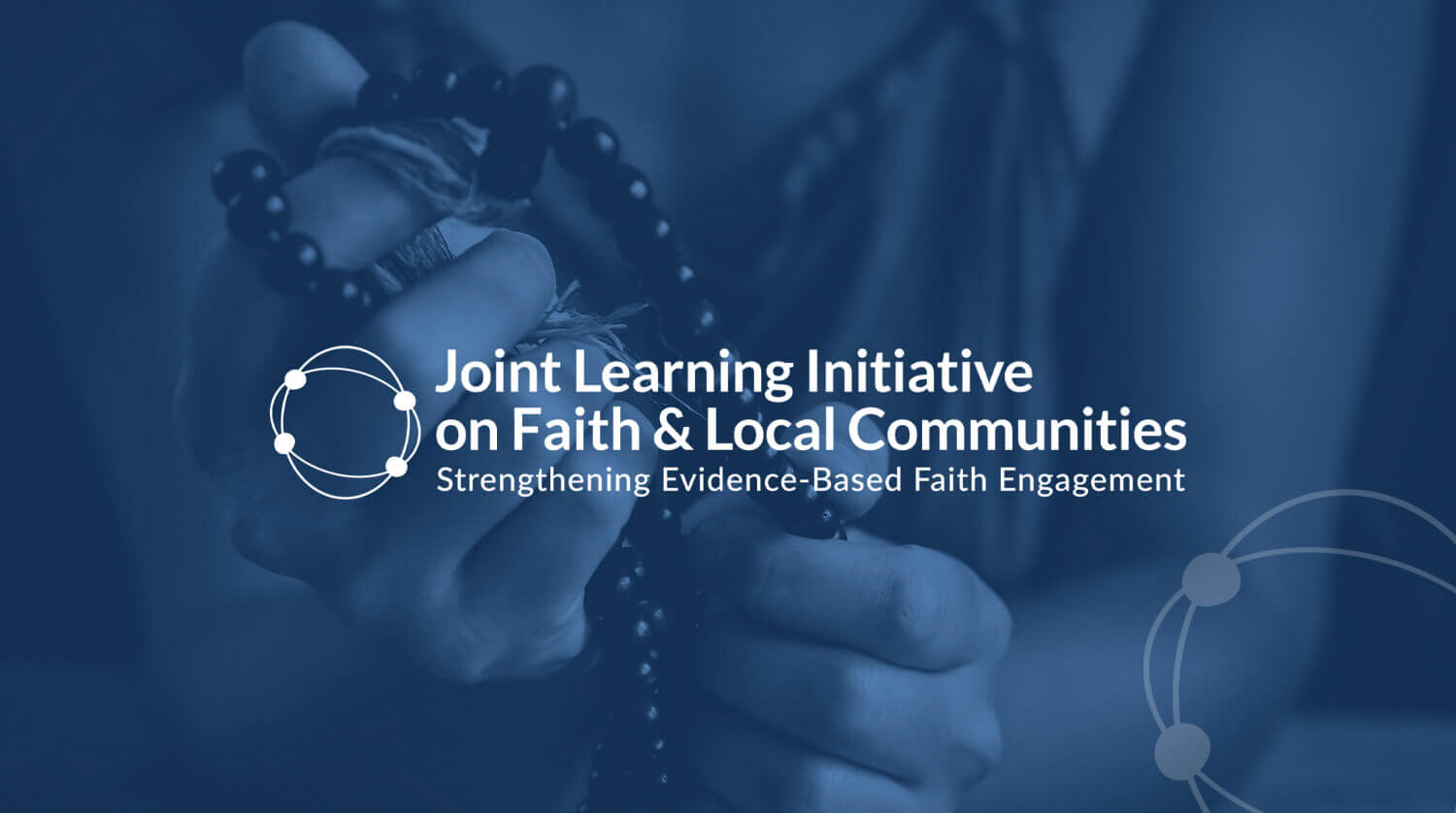*To translate this text to another language use the world map at the bottom right*: Français, español, Português, عربي
A Statement from the Staff:
It’s in our name! We stand for joint learning, understanding faith-based approaches, and local communities. JLI works with people around the world to learn about and share information (positive and negative) on the impact of faith groups in local communities and to support local leadership for positive change. True solidarity with local leaders requires us to be actively anti-racist and to operate in ways that affirm the need for equity and justice. The admirable aim to localize humanitarian and development work is defeated because we continuously fail to cede power to local partners. We support our staff members who are participating in the #BlackLivesMatter movement and assert that the lives of George Floyd, Ahmaud Arbery, and Breonna Taylor, and all black women, men, girls, and boys, whose lives have been cut short through racism, matter.
Racial justice and decolonizing development are among the topics we reflect on and study in our work. But now, joining the growing response to the injustice of systemic racism so painfully demonstrated, we commit to re-examining our way of working, to be explicit about the changes we aspire to make, and to holding ourselves to account. Acknowledging that we are participants, not observers, in oppressive systems, we want to do our part to end systemic racism in the US and elsewhere, and to dismantle discriminatory power structures in the humanitarian and development systems in which we operate.
We are based in the US with collaborators around the world. We recognize that our geographic location, backgrounds, networks, language, and a host of other material and immaterial advantages give us the extraordinary privilege and opportunity to support and effect change. In 2017, at the convening of the conference “Localizing Response to Humanitarian Need: The Role of Religious and Faith-Based Actors,” local faith actors shared their experiences of discrimination and exclusion by international actors, frequently white people with decision-making power. At the end of the conference, participants committed to using our privilege to support local and national faith actors by:
- Sharing and amplifying the evidence of local faith actor contributions to humanitarian response,
- Building mutual understanding and relationships between international actors and local faith actors,
- Educating others on the role of local faith actors and advocating for their inclusion.
We affirm now to our national and local partners that we remain committed to these goals, and to strengthen the evidence base in which they are grounded, while also recognizing that there is even more that we can do to achieve them and work in solidarity. We seek to support and amplify the positions of local actors and believe that shifting power to local actors can reverse this course.
We are committed, above all else, to the local leadership of humanitarian and development systems, and to supporting the agency of national and local faith and non-faith actors. As a small staff team we commit to intensifying our ongoing efforts, to make these changes internally, and to hold ourselves to annual account to these standards and aspirations:
- Advance the evidence-based case to our international humanitarian and development partners for their recognition and inclusion of the agency and leadership of local actors.
- Counter discriminatory attitudes and practices from international faith and non-faith actors by speaking out when we witness it.
- Allocate funding specifically for academics and actors from the Global South in all future budgets. Partner with scholars and consultants from the countries where research is taking place through the entirety of the research process from inception to conclusion.
- Neither convene nor participate in discussions without diverse speakers.
- Raise up the voices of black researchers, religious leaders, and humanitarian and development practitioners.
- Ensure that published reports and bibliographies cite an inclusive and diverse representation of scholars.
- Support further diversification and inclusivity of the JLI Board, Learning Hubs, and research partnerships.
- Hold regular conversations among the staff team for a review of progress against these commitments, and for critique and questioning.
- Speak up individually within our circles of professional and personal influence.
- Encourage all our member organizations and institutions to speak out and make commitments on the topic of racism, decolonization, and full commitment to full localization in the humanitarian and development sectors.
There is no peace without justice. We stand in solidarity with people who are suffering from racial discrimination and commit to working together for a just, peaceful world.
Signed by the JLI Staff, 19 June 2020, (in recognition of Juneteenth in the United States)
Kirsten Laursen Muth, Jean Duff, Olivia Wilkinson, Rima Alshawkani, and Stacy Nam.
Here are some selected resources that we’ve recently found to be helpful:
- Opinion: On equity in the international development sector — we need more intravists. Blessing Omakwu // 05 June 2020. https://www.devex.com/news/opinion-on-equity-in-the-international-development-sector-we-need-more-intravists-97404
- Ways to be in action against anti-Black racism. Jennifer Lentfer, June 1, 2020. http://www.how-matters.org/2020/06/01/ways-to-be-in-action-against-anti-black-racism/
- Opinion: International development has a race problem. Angela Bruce-Raeburn // 17 May 2019 https://www.devex.com/news/opinion-international-development-has-a-race-problem-94840
- Global Manifestations of Racism Today, a special issue of The Ecumenical Review, World Council of Churches. https://onlinelibrary.wiley.com/toc/17586623/2020/72/1
- “It’s a tricky one” – development practitioners’ attitudes towards religion, Development in Practice, Nora Khalaf-Elledge, 31 May 2020. https://www.tandfonline.com/doi/abs/10.1080/09614524.2020.1760210?journalCode=cdip20
- Decentering the ‘White Gaze’ of Development, Dr. Robtel Neajai Pailey, http://www.open.ac.uk/ikd/dsa2019 and https://onlinelibrary.wiley.com/doi/full/10.1111/dech.12550 [article].
- What Can We Do about the White Savior Complex? Tiny Spark, the podcast of Nonprofit Quarterly https://nonprofitquarterly.org/what-can-we-do-about-the-white-savior-complex/
- Have nonprofit and philanthropy become the “white moderate” that Dr. King warned us about? June 1, 2020, by Vu https://nonprofitaf.com/2020/06/have-nonprofit-and-philanthropy-become-the-white-moderate-that-dr-king-warned-us-about/
- Six Recommended Ways for Religious and Traditional Actors to Fight Racism, The Network of Religious and Traditional Peacemakers. https://www.peacemakersnetwork.org/five-recommended-ways-for-religious-and-traditional-actors-to-fight-racism/
Statements from JLI affiliates (please email us to add your statement):
https://irusa.org/in-solidarity/
https://www.worldvision.org/president-statement-racial-injustice
https://adra.org/denouncingracialinequality
https://ajws.org/press-releases/statement-robert-bank-george-floyd-institutional-racism-in-us/
https://corusinternational.org/blog/2020/corus-international-condemns-racism
https://mediacentre.christianaid.org.uk/christian-aid-statement-on-black-lives-matter/
https://www.tearfundusa.org/blog/our-commitment-to-racial-justice






